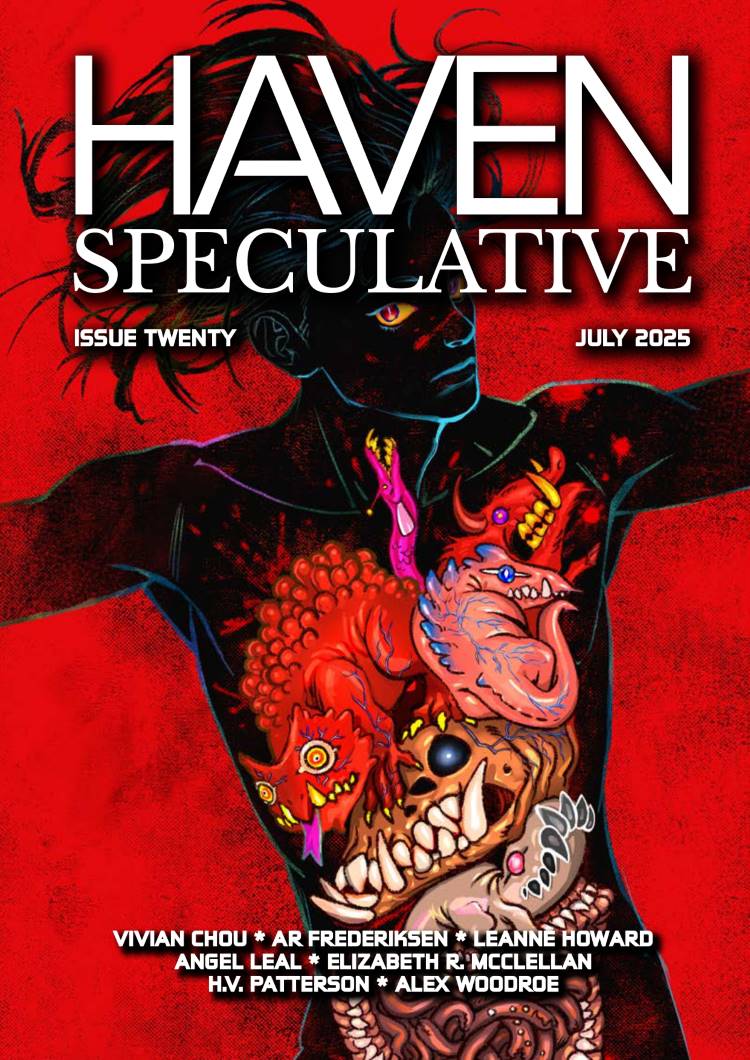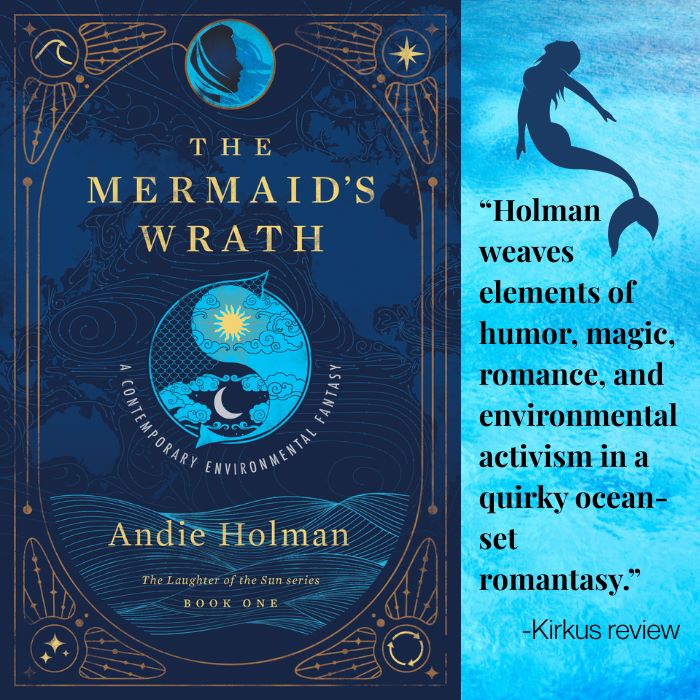FICTION
Conjured from the Rubble
By Marissa Lingen in Issue Sixteen, July 2024
After the quake, the air smelled like dust and blood and the ozone of lightning spells. The students were all on a mountain retreat with the chancellor, so there was no one to do the heavy work of cleaning up the university but the faculty and staff.
The quad had been hit hard. Most of the statues of glorious wizards of yore had sustained damage, including Head Wizard Barra's, which had plummeted from its pedestal, separating head from body. I didn't even understand where all the stones and debris had come from, but a lot of it would have to be removed through pure backbreaking labor.
This Mentor Lives
By J.R. Dawson, John Wiswell in Issue Sixteen, July 2024
Abraham was rushing through his miracles. He drew out the rune-etched broadsword of young Haddad's great-grandfather and laid it in the boy's hands, along with the elegant sheath that lunar moths had woven from their own silk. Then came the maps that would send Haddad on the next leg of his journey: those that told how to navigate mountains by constellations of the sky, and those of the eight oceans that could only be read amid sea breeze.
Underneath that pile of iron and parchment and enchantment, the little Haddad wriggled. He was barely visible under the pile of destiny he held.
"Wait! What do I do with this one? Does it re-dead zombies?"
Reciprocity
By Valerie Kemp in Issue Sixteen, July 2024
Amber has been dead three days when she wakes up in her boyfriend's bathtub. It isn't the scritch-scratch of the tattoo needle that brings her back—although that sting is strange and unexpected. No, it's the cold that shocks her back into the world. She's buried up to her neck under bags of melting ice.
"Holy shit," Cash, her supposed-to-be-ex-boyfriend, shouts at the sound of her involuntary gasp. "I did it!" He's crouched beside the tub, tattoo pen in one hand, her wrist in the other.
Of course. Amber can barely hold back her sigh. Of course.
Never underestimate the power of an entitled man with a fragile ego and too much paid time off.
Human Habits
By Bree Wernicke in Issue Sixteen, July 2024
It is of vital importance to brush one's teeth, says Maralka, even though there are the horrors. Brush twice a day, waking and going to sleep again. And one mustn't eat an hour beforehand, which is easy the first time because Joni can't eat while sleeping, and come to think of it also easy the second time, because there's not so much food in the high cupboards of their little room that she could spend all day eating it.
You can't eat before because your saliva still has digestion modes, says Maralka, and the combination of salivary acidity plus the abrasion of the toothbrush can compromise your enamel. Enamel is what's on the outside of your teeth, but there's also something called calculus, which is not math but bacteria poop "It's like how inflammable means that something might catch fire or it might be unable to catch fire," Maralka explains one day, in the middle of brushing.
Ghost Apples
By Madi Haab in Issue Fifteen, May 2024
Cathilde pulled her foot back, shuddering at the sight. The rabbit was just outside the tent, laid out like an offering. Beady brown eyes stared up at a sky the colour and texture of meringue; its soft white fur rippled in the crisp wind, and a spray of red berries grew out of its mouth, covered in a thin lace of frost.
The first time it happened, Aglahé had sliced open the rabbit's—seemingly innocuous—belly to reveal a furl of pale flowers growing between its organs. The second time, a tangle of roots had grown overnight next to their tent, a white pheasant encased in its coils. The third, they had opened a handful of chestnut shells, only to find quail chicks nestled inside.
The One Who Listened
By N. R. M. Roshak in Issue Fifteen, May 2024
There is a language that I know, but my tongue cannot form the words. Even if it could, the sentences are too long for you to listen to. They stretch across hours, or days. You are like the small fast ones of the forest—the birds, the lightning sparks of minnows in the creeks—words pour off your tongue, your hands flutter in the air. I can move quickly, too, but language is meant to be slow.
You were trying to save me, I know. But it is very lonely here.
Through A Glass, Face To Face
By Rin Willis in Issue Fifteen, May 2024
The first time, I'm watching cat videos on my laptop when my chest starts to ache, and a long line of pain from my forehead down past my navel splits me into two.
And then, the sensation of fingernails, scratching under my skin.
When it's over, she stands naked in the moonlight, her body a mirror of my own. Same slightly upturned nose, same mouse-brown hair, same curves. But her eyes are filled with different histories, and her mouth is twisted in a smile that I have never been able to accomplish. In her right hand is a knife the color of old bone.
Ten Ways of Looking at Snow, Reflected Off an Obsidian Armor
By Avra Margariti in Issue Fifteen, May 2024
1.
You were cruel when we first met.
It would have been easy to claim I was sleepwalking, under your compulsion. But the truth was, I sought you out that midwinter night, in my spiderweb-flimsy nightgown and bruised, bare feet, chasing after a woodland vista I was taught through catechisms and beatings always to avoid. I left my bed in the smallest of hours despite parents and priests cautioning I stay away from the Erl-Queen's territory.
You were cruel, but you were honest too, unlike the honey-concealed callousness of my family and villagefolk. Wrapped in obsidian armor, you inspected me through the tenebrous gaps of your visor and said in a crushed-velvet voice, "My horse will cross this part of the woods once, and only once. It matters not to me if you join me or not."
Every Breath a Kiss
By Natalia Theodoridou in Issue Fifteen, May 2024
He thought drowning would feel blissful. Scary at first, the panic of breathlessness, but then pleasant and mostly serene. He had already decided that, when the time came, he would be eclipsed from this life with a mangled Manfred quote: "It is not so difficult to die, after all."
It was not peaceful.
The salt stung the inside of his torso, his ribs turned to knives that sliced him open. His very blood felt like an attack: an enemy of his own making. He swallowed mouthful after mouthful of seawater. His throat burned, his stomach distended to bursting. The sound of the ocean filled his ears: a beast, roaring with aquatic laughter. Manfred? Who's Manfred?
A Future in Ashes
By Matt Tighe in Issue Fifteen, May 2024
Cass can't bring herself to watch her brother burn. All the websites say you should, and that you should also watch as they scrape the ash up and put it in the urn. That you should not take your eyes off your loved one at all.
She doesn't understand how anyone could follow that advice.
She stays in the waiting area, sitting in one of the hard plastic chairs. There is a bereavement room with a couch and a small table where people can sit and weep in something closer to comfort, but to Cass it feels too small and... full. Full of sadness and confusion and the ache of stale loneliness. Her grief needs more space. Her grief is bigger than a small room already crowded with painful echoes.




